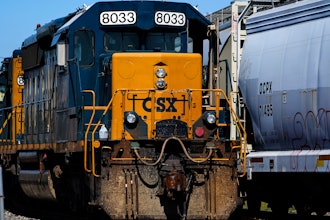New Oxfam America poll reveals harsh realities in the world's most unequal rich country
WASHINGTON, Aug. 28, 2013 — As the nation prepares to mark Labor Day, Oxfam America released the findings of a new poll commissioned to explore the realities of America's working poor. The survey reveals that America's low-wage workers have a fierce work ethic and believe that hard work can pay off. However, they hold jobs that trap them in a cycle of working hard but unable to get ahead and with little hope for economic mobility.
The survey, which was conducted on Oxfam America's behalf by Hart Research Associates, found that most low-wage workers barely scrape by month-to-month, are plagued by worries about meeting their families' basic needs, and often turn to loans from family and friends, credit card debt, pawn shops and payday loans, and government programs just to get by. The poll also found that the workers facing the greatest challenges are also the most vulnerable, and that includes parents, women, and those making less than $10 per hour.
"For tens of millions of low-wage American workers, Labor Day is another long day on the job—doing hard work, often at irregular hours, for low pay and few benefits," said Raymond C. Offenheiser, president of Oxfam America. "As our nation struggles to recover from the Great Recession, there is little recovery for a quarter of American workers who are stuck in low-wage jobs. Our country is now the most unequal rich country in the world, and has the largest percentage of low-wage workers of any advanced economy."
Oxfam's survey shows that in addition to inadequate incomes, low-wage workers also face challenges and obstacles that make it difficult to maintain basic job security and to find paths for advancement. Almost a third of those surveyed reported that they have no workplace benefits, such as paid sick leave, health insurance or paid vacation time. And one in six reported having lost a job in the last four years because they got sick or had to take care of a child or family member. A majority of the working poor surveyed believe that it is more common for middle-class people to fall out of the middle class than for low-income people to rise into the middle class.
"Poverty in the US looks very different from poverty in the developing countries where Oxfam often works," said Offenheiser. "But what is the same – be it in the world's richest country or its poorest-- is the injustice of a society in which a few are mind-bogglingly rich, some are doing well, and too many are working hard but simply can't make ends meet."
A majority of low-wage workers reported that they believe that government has a responsibility to ensure that everyone has enough to eat, has access to health care and a roof over their head. But they also believe that government policy is slanted toward benefiting the rich rather than helping the poor get ahead.
"Despite their struggles, our survey finds that low-wage workers don't want hand-outs; they want a level playing field. They want fair wages, decent working conditions, and dignity," continued Offenheiser. "A majority of the working poor support a higher minimum wage, help in making child care more affordable, and expanding the earned income tax credit."
Note: According to the Gini index, the most commonly used measure of inequality, the United States is the wealthiest nation with the largest difference between the poorest and richest.
Oxfam America is a global organization working to right the wrongs of poverty, hunger, and injustice. We save lives, develop long-term solutions to poverty, and campaign for social change. As one of 17 members of the international Oxfam confederation, we work with people in more than 90 countries to create lasting solutions. To join our efforts or learn more, go towww.oxfamamerica.org






















